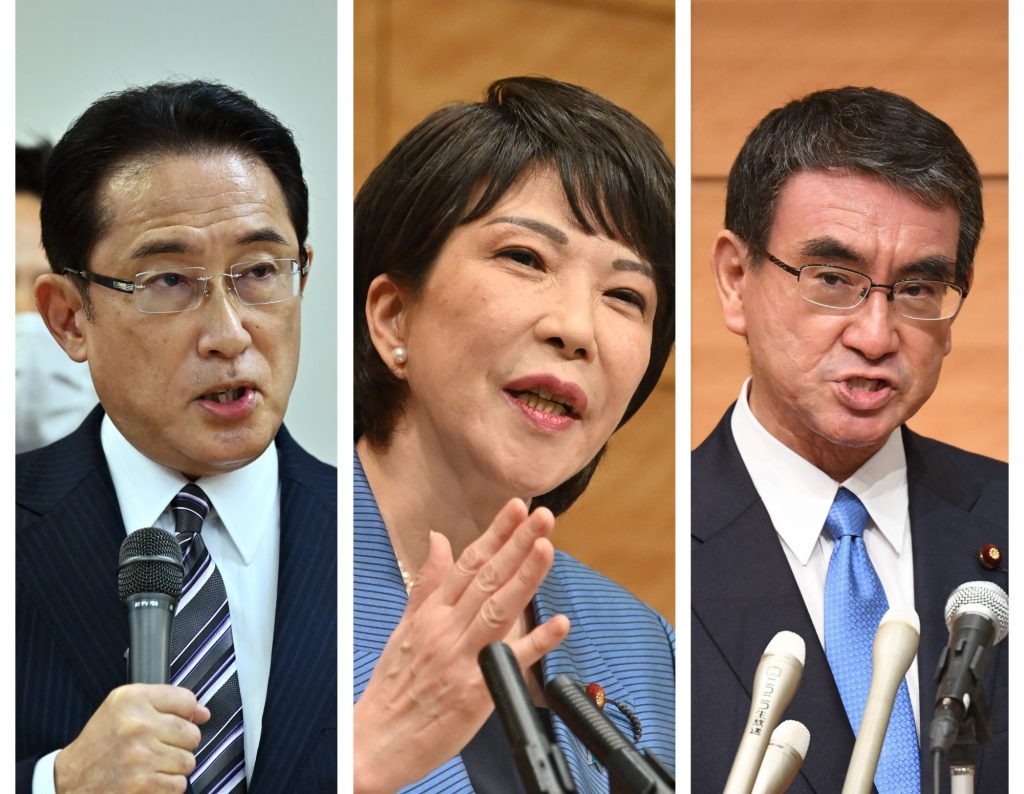
- ARAB NEWS
- 12 Jul 2025

TOKYO: Three potential candidates in the Sept. 29 leadership election for Japan’s ruling Liberal Democratic Party stepped up their activities Sunday to increase support from party lawmakers and rank-and-file members.
In a YouTube program, KISHIDA Fumio, 64, former chairman of the LDP’s Policy Research Council, said, “I will put effort particularly into protecting basic values,” showing a plan to name an adviser on human rights issues for the prime minister. He made the remarks apparently with China’s suspected human rights abuse in mind.
On a possible contingency in the Taiwan Strait, Kishida said, “We need to confirm in advance our country’s stance of acting resolutely if the situation meets the conditions stipulated in Japan’s peace and security legislation.”
In talks with reporters later, Kishida said: “Unlike last year, it is difficult to predict the result of the LDP contest. I will fight the upcoming election with a sense of tension until the last minute.” He lost in the September 2020 election for LDP presidency.
In a television program, former Internal Affairs and Communications Minister TAKAICHI Sanae, 60, reiterated her intention to continue visiting war-related Yasukuni Shrine if she becomes prime minister, saying, “I have freedom of religion.”
本日も報道番組などで政策説明させて頂きました。明日は7:30 フジ日曜報道THE PRIME、明後日16:45 関テレ報道ランナー、20:54 BSテレ東日経ニュースプラス9と20:59 BS11報道ライブインサイドOUTの予定です。テレビ観たとのお声、励みになっております。 pic.twitter.com/MHuKMXGBbM
— 高市早苗 (@takaichi_sanae) September 11, 2021
“I don’t know why the United States opposes (a Japanese prime minister visiting the shrine),” Takaichi said, adding that she will call on the United States and China to pay respect together to those who lost their lives for their respective countries.
The Shinto shrine in Tokyo, which honors Class-A World War II criminals, is regarded as a symbol of Japan’s past militarism especially by China and South Korea.
Regulatory reform minister KONO Taro, 58, exchanged opinions with students online. On how to promote the use of renewable energy, Kono said that financial and other support has been insufficient, stressing the need to overhaul the current policy.
He did not refer to whether Japan should end its dependence on nuclear energy for power generation.
Kono, known as an advocate of the country eliminating nuclear power generation, has modified the stance. In talks with reporters earlier this month, Kono indicated his tolerance of nuclear power reactors whose safety is confirmed being brought back online as the country aims to achieve net-zero emissions of greenhouse gases.
河野太郎の5つの主張と政策をPDFにまとめました。リンクよりぜひご覧ください。#日本を前に進める https://t.co/oDSa0gxwCZ pic.twitter.com/X3I8AnlhXx
— 河野太郎@自民党総裁選 (@konososaisen) September 11, 2021
JIJI Press